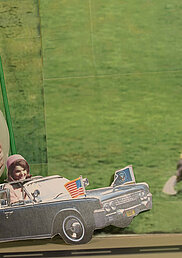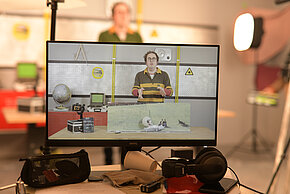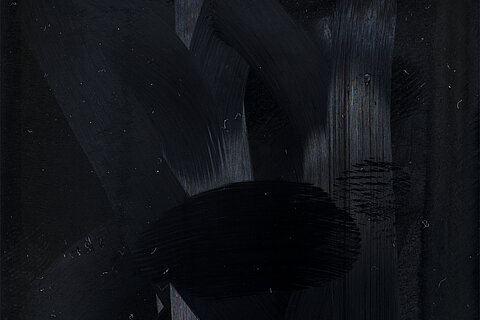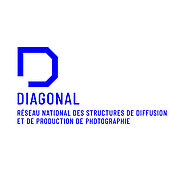En quête de complots
Based on an original idea and scenario by Benoît de Chaumont.
The films are co-produced by Roue Libre and the Lavoir Numérique (a cultural institution operated by EPT Grand Orly Seine Bièvre).
Directed by: Alexis Carcuac – Scenery and set design: Cécile Rivet.
Vernissage:
Thursday 22 September 2022 at 6 pm
(Free admission)
Guided Tours
Thursday 27 October 2022 and Thursday 26 January 2023 at 7 pm in the presence of Benoît De Chaumont. Free Admission (reservation required). Please contact: loic.blanchefleur@grandorlyseinebievre.fr
(...) In many respects, conspiracy theories are a worrying phenomenon, but how can we choose the best angle from which to present them? How can you talk about this subject without adopting a simplistic schema that aims only to stigmatise those who believe in such theories? For this reason, we adopted a different approach, one that involves trying to understand the circumstances that lead people to doubt and distrust everything they are told. And to effectively document this highly complex subject, we chose to combine humour and pedagogy in six whimsical and satirical fictions. The resulting videos were written at the end of 2021 and filmed with the help of production company Roue Libre in spring 2022.
The videos that make up the exhibition are based on the fictional life of “Paul B”, an ordinary boy who could be the son, the brother, or the friend of just about anybody. One day, “Paul B” decided to go down the road of doubt and suspicion. Various colourful experts - who are also entirely fictional, but at the same time freely inspired by real people - analyse the journey of this budding conspiracy theorist as he travels towards his own version of the truth. They highlight the mechanisms at play that make conspiracy theories not only accessible, but also attractive.
During the visit that initially takes the form of an investigation, visitors are encouraged to think about the true nature of the conspiracy and everything around it and ask themselves how the information is presented, why and by whom. Above all, however, they will hopefully learn a little more about their own personality and the things they choose to believe.
Benoît De Chaumont
Beaucoup de questions se posent alors : un complotiste est-il quelqu’un qui croit à toutes les théories du complot ? Ou bien à une unique théorie du complot qui les expliquerait toutes ? Pouvons-nous taxer de complotiste n’importe quelle personne exprimant un doute à propos d’une situation ou d’une manière de présenter des faits ? Au final, c’est quoi le complotisme ? Et comment devient-on complotiste ?
À bien des égards, le complotisme est un phénomène inquiétant. Mais sous quel angle le présenter ? Comment en parler sans pour autant entrer dans un schéma simpliste visant à stigmatiser les complotistes ? Nous avons donc préféré une autre approche, tâchant de comprendre les circonstances amenant un complotiste à douter et à se méfier de tout. Et pour rendre compte efficacement de la complexité de ce sujet, nous avons choisi l’humour et la pédagogie à travers une exposition de 6 vidéos fantaisistes, satiriques et fictives. Ces vidéos ont été écrites en fin d’année 2021 et réalisées au printemps 2022 en collaboration avec la société de production Roue Libre.
Ce parcours vidéo s’appuie sur la vie fictive de « Paul B », jeune garçon lambda qui pourrait être le fils, le frère ou l’ami de n’importe qui et qui a décidé un jour d’emprunter la voie du doute et de la suspicion. Différents experts hauts en couleurs, eux aussi parfaitement fictifs mais tout de même (librement) inspirés de personnages réels, analysent le voyage de ce complotiste en herbe vers sa propre version de la vérité et mettent en valeur les mécanismes qui rendent la pensée complotiste non seulement accessible mais également séduisante.
Au cours de ce parcours qui se présente à première vue comme une enquête, nous sommes amenés à nous questionner sur la nature véritable du complot et ce qui l’entoure (comment nous sont présentées les informations, pourquoi et par qui ?). Mais surtout nous en apprenons, peut-être, un peu plus sur notre propre personnalité et sur ce que nous choisissons de croire.
Benoît de Chaumont

[Texte à traduire en "Anglais" :]
L'intégrale de l'exposition vidéo est dorénavant en ligne sur notre chaîne YouTube :
Télécharger le communiqué
Programme de la Séquence #4 : complotisme












